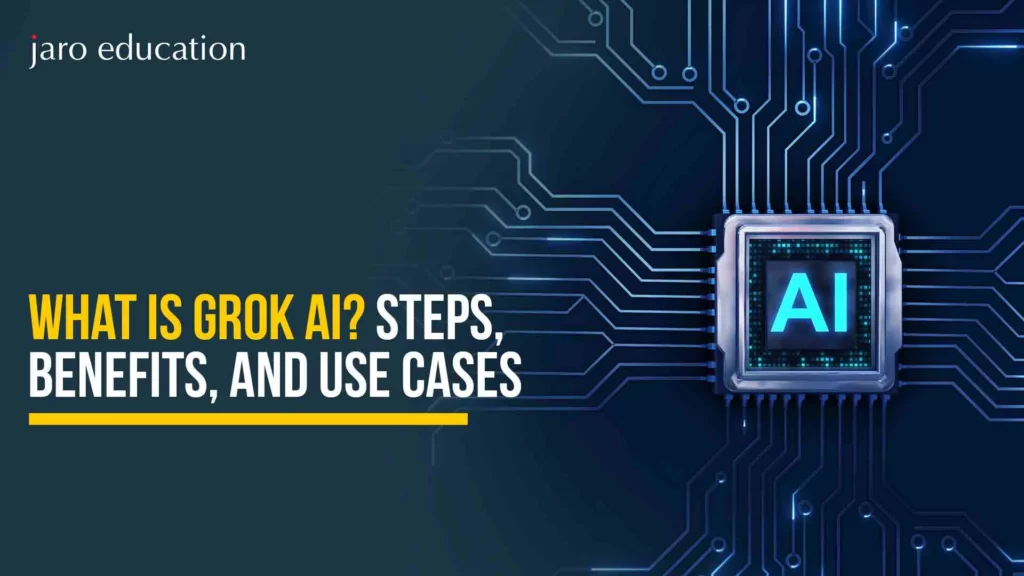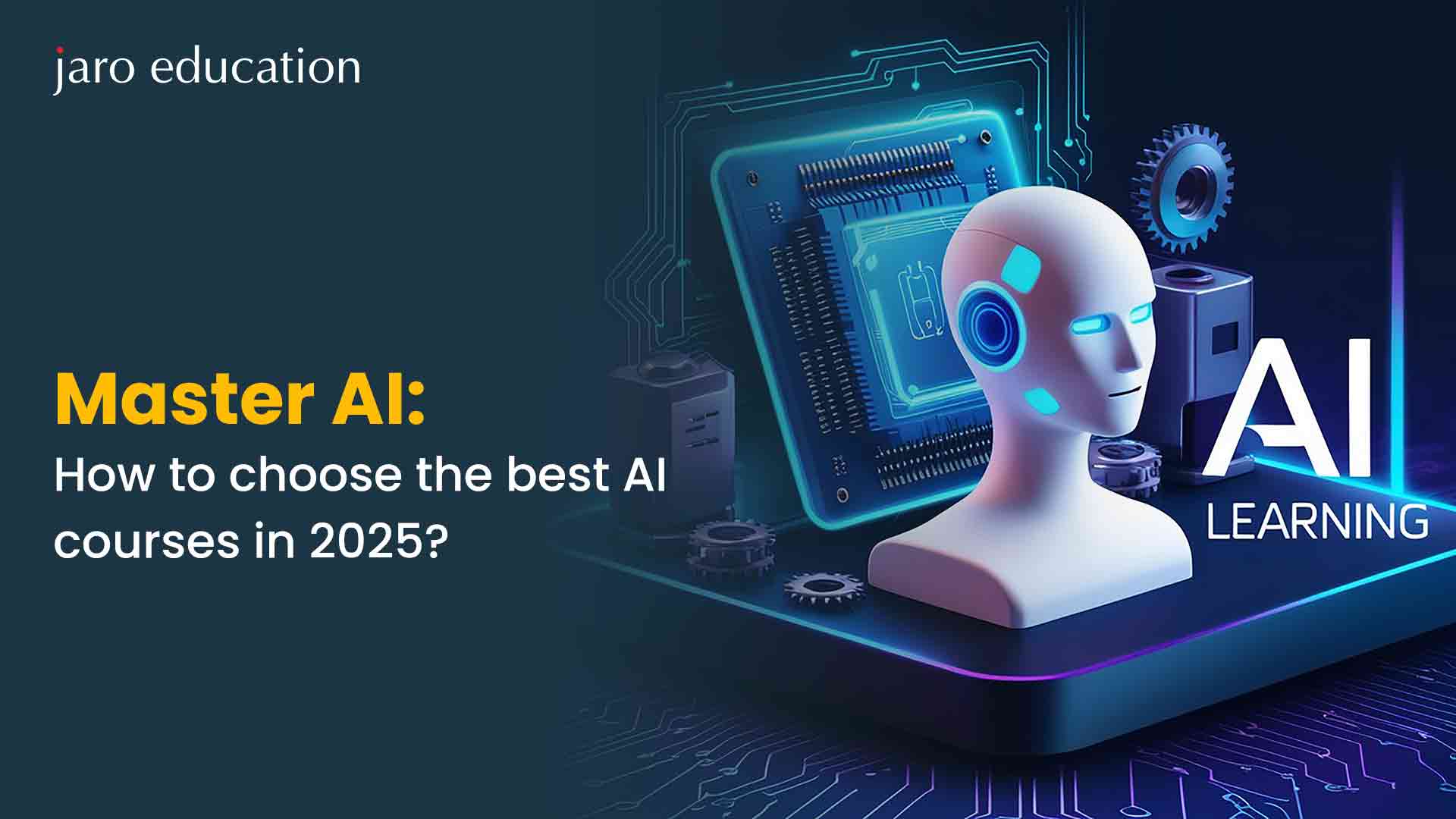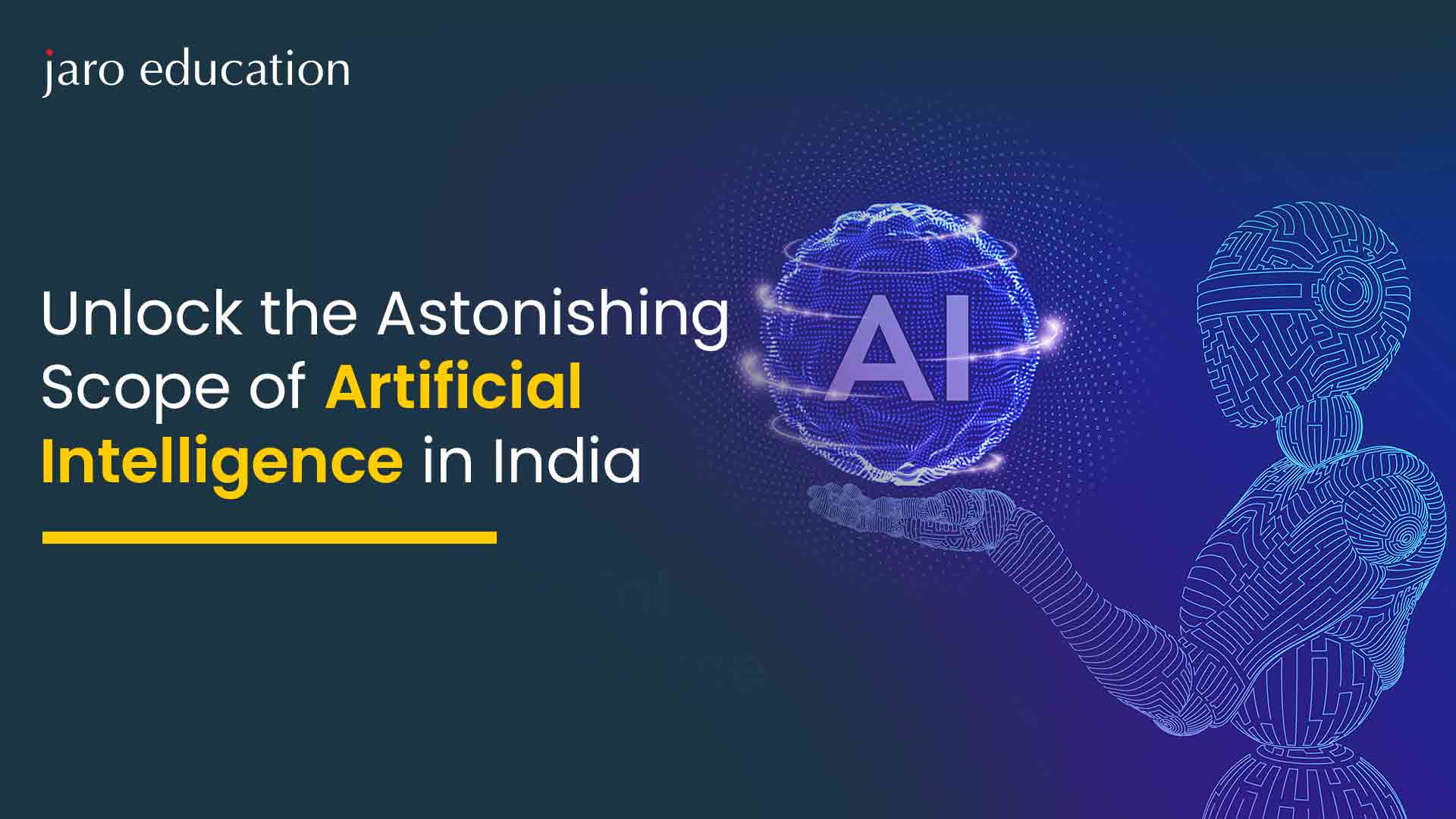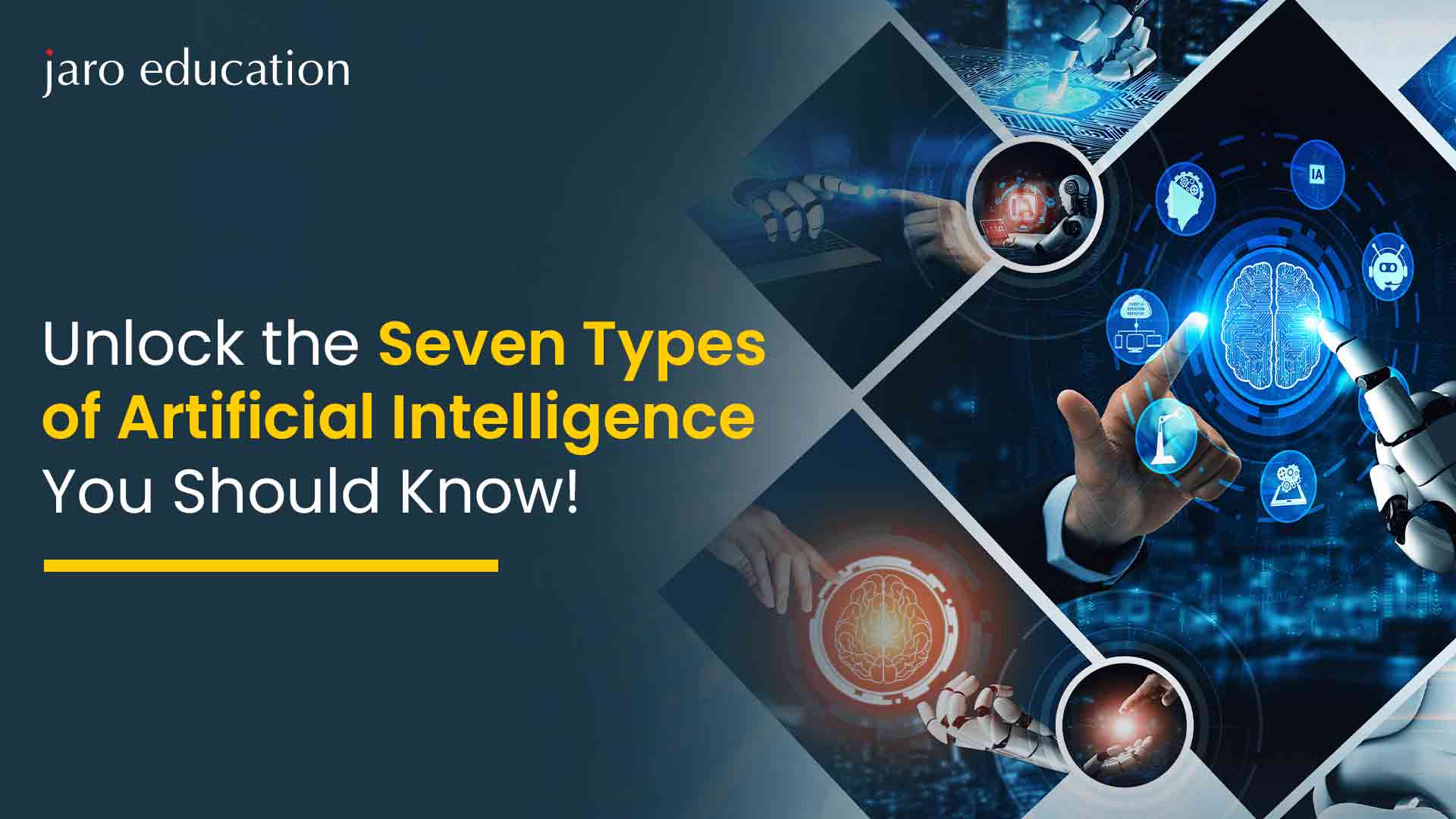Theory of Mind AI: The Power of Empathy
Table of Contents
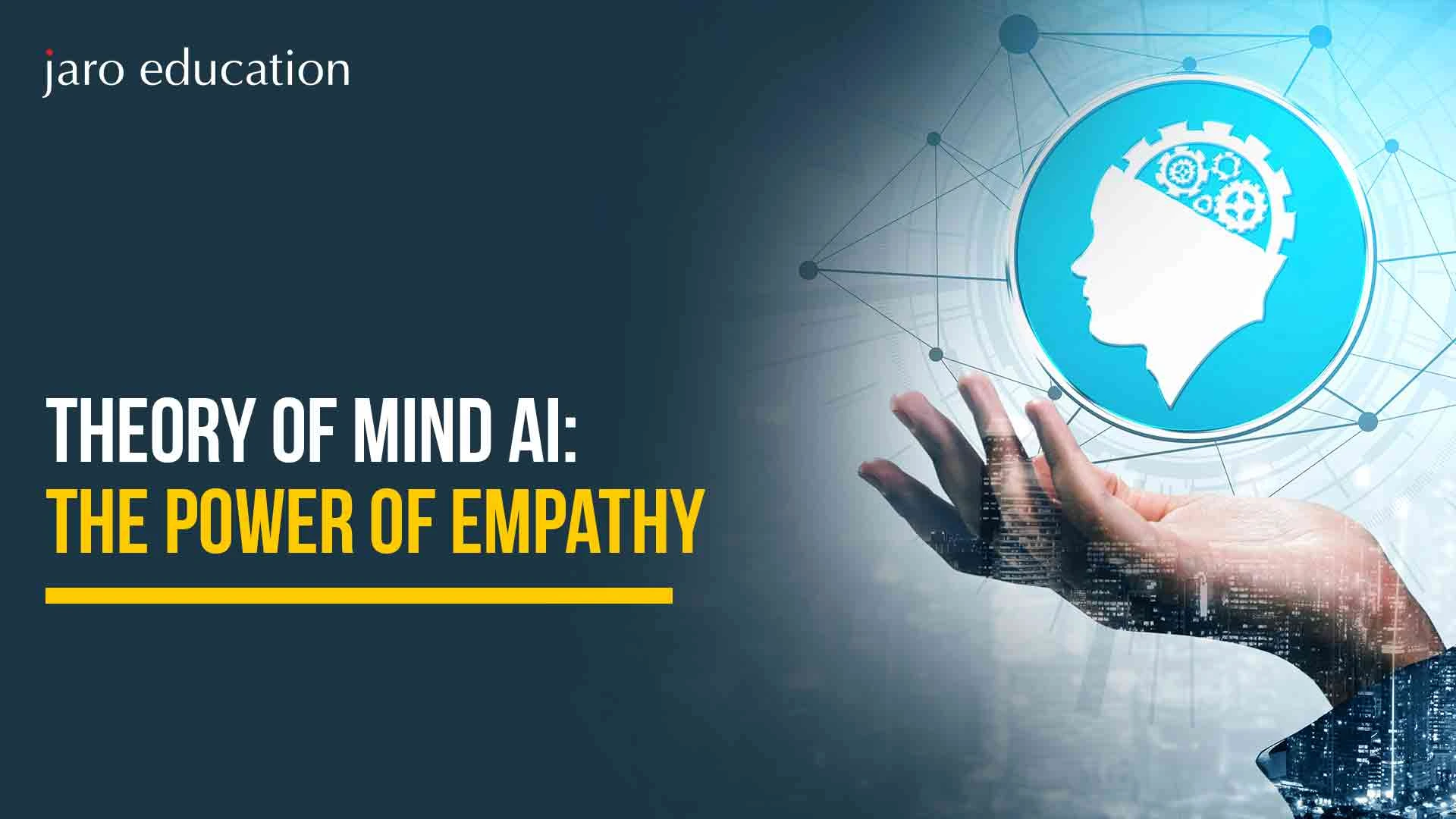
- jaro Education
- 20, March 2024
- 2:00 pm
The concept of the “Theory of Mind – Artificial Intelligence” involves the ability to comprehend and interpret the mental states of others, which allows us to understand and predict their behavior. This includes attributing beliefs, desires, intentions, emotions, and thoughts to others, even when they may differ from our own. In simpler terms, the Theory of Mind enables us to put ourselves in someone else’s shoes and understand what they might be thinking or feeling.
A recent study by Stanford University, USA, “Theory of Mind Might Have Spontaneously Emerged in Large Language Models,” explores the correlation between Theory of Mind (ToM) and language use. Using GPT-4, the research highlights ToM’s significance in human cognition and communication, emphasizing its early development and its link to psychiatric disorders. This builds on previous indications of ToM in AI, showcasing GPT-4’s advanced generative capabilities compared to ChatGPT-3.5.
What is the Theory of Mind AI?

*Neil Sahota
The Theory of Mind (ToM) stands as a cornerstone in AI, empowering machines to seamlessly integrate into human society by deciphering and understanding human mental states. In the expansive field of theory of mind Artificial Intelligence (AI), where tasks demand human-like intelligence, ToM assumes a pivotal role. Consider autonomous cars, where AI’s adeptness in comprehending and anticipating the mental states of human drivers and pedestrians acts as a preventive measure against accidents.
The evolution of AI, propelled by heightened computational power and advancements in deep neural models, encompasses fundamental aspects like learning, pattern recognition, and knowledge utilization.
In the sphere of social interaction, AI demonstrates an understanding of human dynamics, morals, empathy, and natural social behaviors. These capabilities not only augment AI’s function in our social lives but also contribute to a more intuitive and empathetic integration into human society.
Amidst this technological advancement, the demand for professionals adept at merging marketing expertise with AI technology is surging. In response, IIM Indore has launched the “Executive Programme in Marktech and AI Driven Marketing,” a cutting-edge course designed to arm marketers with the necessary knowledge and skills to leverage AI, including ToM AI, for developing marketing strategies that resonate deeply with consumers and drive effective engagement.
The Evolution of Empathy In AI: Beyond Data Processing
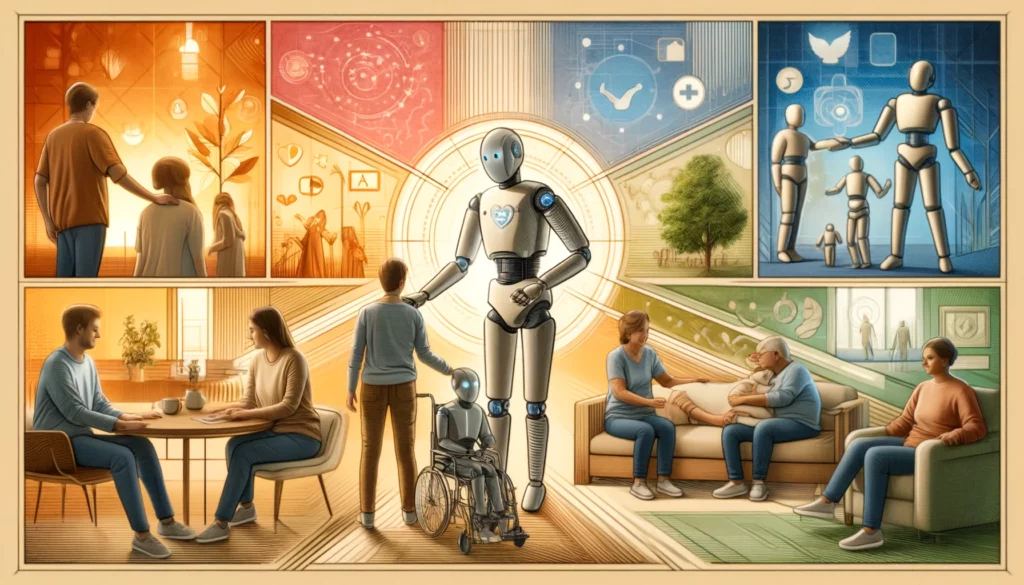
*Artificial Paintings
Traditional AI has long been characterized by its ability to process vast amounts of data, recognize patterns, and execute predefined tasks with remarkable precision. However, as impressive as these capabilities are, traditional AI falls short when it comes to understanding the nature of human behavior, entering the era of Empathy AI—the next frontier in theory of mind artificial intelligence.
Empathy, defined as the ability to understand and share the feelings of others, introduces a profoundly human element into the technological landscape. By incorporating empathy into AI systems, developers aim to bridge the gap between machine and human understanding, revolutionizing the way AI interacts with and serves its human users.
How does AI Measure Emotions?
AI agents employ a variety of techniques to measure emotions, drawing insights from facial expressions, speech patterns, physiological responses, gestures, and contextual information. Facial recognition technology analyzes key features like smiles or frowns to identify emotions, while speech and voice analysis assess tone, pitch, and linguistic cues in spoken communication.
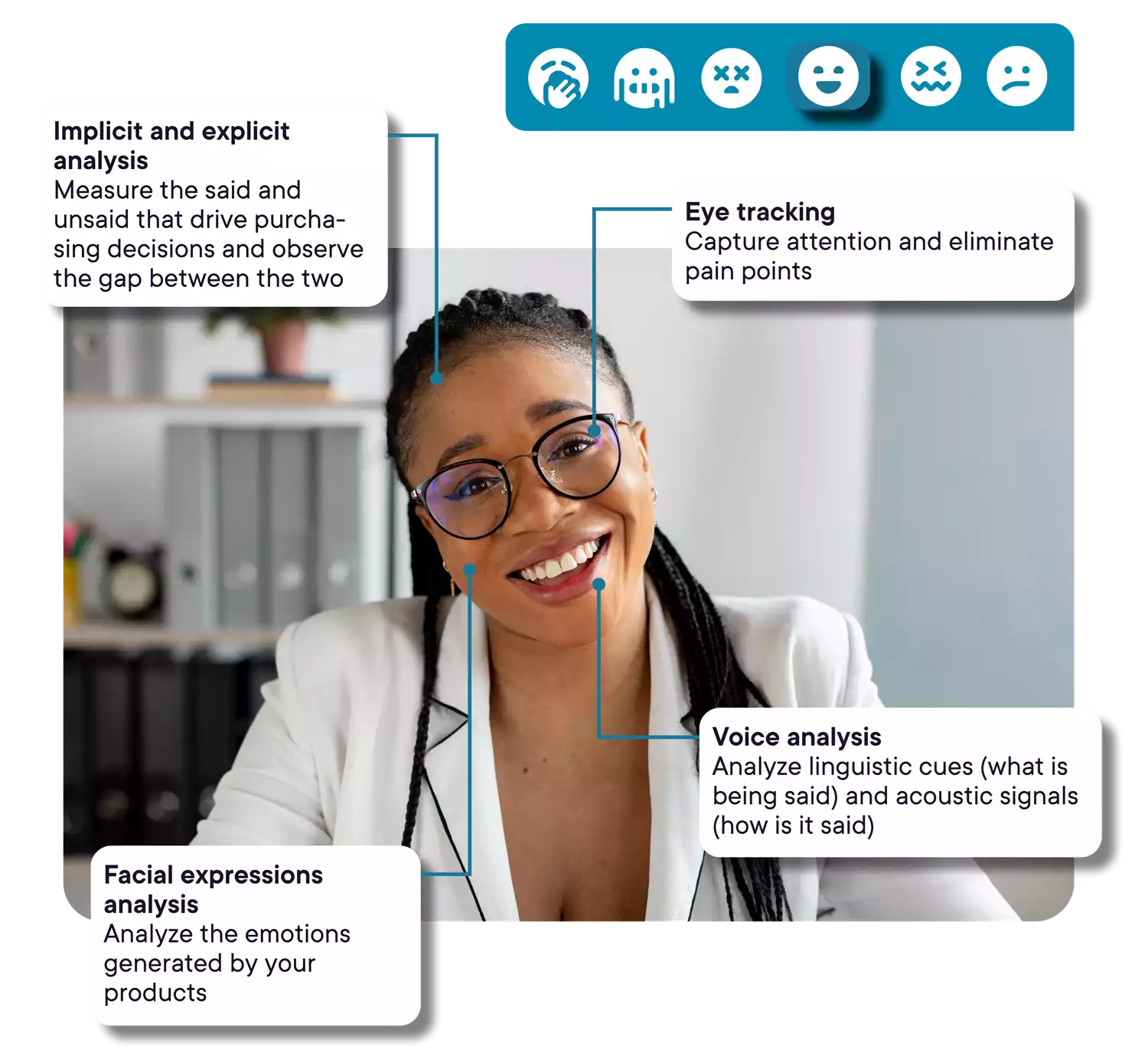
*www.visioneers.com
Physiological measurements, such as heart rate or skin conductance, provide real-time data on bodily reactions associated with emotions. Gesture recognition interprets body language, and contextual awareness considers the surrounding environment for a more nuanced understanding. Machine learning algorithms, including deep learning models, are trained on labeled datasets to recognize patterns in diverse data types, such as images, audio, or text.
As this field evolves, combining multiple modalities and prioritizing ethical considerations, user consent, and privacy safeguards are integral for responsible and accurate emotion measurement in AI applications.
How AI Can Nurture Human Experiences?
Experiences, in the human context, encompass a rich tapestry of interactions, emotions, and learning encounters that shape individual perceptions and responses to the world. This accumulation of knowledge gained through direct involvement forms the foundation for decision-making, problem-solving, and personal growth.
In the domain of theory of mind artificial intelligence (AI), the acquisition of experiences involves diverse learning methodologies. AI systems, particularly those employing machine learning, accumulate knowledge through supervised learning, where labeled data guides the model, and unsupervised learning, which uncovers patterns in unlabeled data.
Reinforcement learning, transfer learning, and simulations further contribute to the AI’s learning journey. Continuous learning ensures adaptability, allowing AI to evolve and respond to changing contexts. As these systems gather experiences, they enhance their capacity for informed decision-making and effective responses across varied situations, representing a pivotal facet of their ongoing development.
Future of Theory of Mind AI in Empathy
The future of Theory of Mind AI definition holds great promise and potential for transformative impacts across various domains. As research and development continue, several key trends and possibilities emerge:
1. Enhanced Human-AI Interaction
Theory of Mind AI definition is revolutionizing human-computer interactions by enabling AI systems to understand human intentions, beliefs, and emotions. This innovation promises interfaces that go beyond conventional exchanges, becoming more intuitive, responsive, and aligned with human communication patterns.

*Crata AI
The goal is to create empathetic digital collaborators capable of anticipating user needs, responding to emotional cues, and adapting dynamically. This evolution envisions interfaces that not only comprehend explicit commands but also the subtleties of human communication, fostering a seamless integration of technology into the human experience. Ultimately, Theory of Mind AI definition aims to redefine the nature of interactions, offering a more sophisticated, natural, and empathetic engagement between humans and AI.
2. Tailored Emotional Responses
The vision for the future is centered on AI systems that not only comprehend human emotions but also deliver finely tuned and tailored emotional responses. This paradigm shift envisions a level of emotional intelligence that goes beyond the conventional bounds of technology, bridging the gap between human and machine interaction. In this futuristic scenario, virtual assistants and AI-driven interfaces are not merely responsive; they become emotionally attuned companions capable of understanding and responding to the subtle nuances of human feelings.
Consider the scenario where a user expresses frustration while interacting with a virtual assistant. In the future, empathy-infused AI is poised to transcend the mechanical bounds of acknowledging frustration to deliver a response that extends beyond problem-solving. Instead of providing a standard solution, the virtual assistant may respond in a comforting manner, acknowledging the user’s emotional state and offering support. This tailored emotional response reflects a level of emotional intelligence that is sensitive to the user’s feelings, creating a more meaningful and empathetic interaction.
3. Advanced Social Robots
Theory of Mind AI definition is poised to revolutionize the robotics field, particularly in the development of advanced social robots. These robots, imbued with a profound understanding of human emotions and intentions, stand to significantly enhance their effectiveness in social interactions. This newfound capability holds immense value in diverse contexts such as healthcare, education, and companionship.

*Tech4Future
In healthcare, socially adept robots could offer empathetic support and assistance, while in education, they could facilitate more engaging and personalized learning experiences. Additionally, in the realm of companionship, these robots could serve as empathetic and responsive companions, catering to emotional and social needs. The integration of Theory of Mind principles marks a pivotal step towards the creation of socially intelligent robots that can meaningfully and effectively interact with humans in various social settings.
4. Collaborative Human-AI Teams
The future envisions collaborative partnerships between humans and AI, where AI systems, equipped with a heightened understanding of human teammates’ thoughts and intentions through Theory of Mind principles, contribute to enhanced teamwork. This collaboration holds potential across diverse fields, including research, creative endeavors, and complex problem-solving. With AI possessing a nuanced comprehension of human cognitive processes, it becomes an invaluable partner in collaborative ventures.
In research, AI can aid in data analysis and hypothesis generation, while in creative pursuits, it can offer insights and suggestions aligned with human creative processes. Moreover, in problem-solving scenarios, AI’s ability to anticipate and comprehend human intentions can lead to more effective and synergistic outcomes. This collaborative future marks a transformative shift towards harnessing the strengths of both humans and AI in tandem for greater innovation and productivity.
5. Ethical Considerations and Regulation
The growing comprehension of human-like cognitive processes in Theory of Mind AI definition raises ethical considerations that demand careful scrutiny. Concerns, including privacy, consent, and responsible usage, come to the forefront. In shaping the future of Theory of Mind AI, there is a pressing need for the establishment of comprehensive ethical frameworks and regulatory measures.
These frameworks aim to ensure the responsible deployment of such technologies, safeguarding individual privacy, obtaining informed consent, and preventing potential misuse. By proactively addressing these ethical dimensions, the development and implementation of Theory of Mind AI definition can align with societal values, fostering a balance between technological advancement and ethical considerations for a more responsible and beneficial integration into various facets of human life.
6. Advancements in Cognitive Computing
The ongoing research in Theory of Mind AI definition holds the potential to drive advancements in cognitive computing. As the field progresses, there is an anticipation of more intelligent, adaptable, and context-aware systems emerging. These evolved systems are expected to showcase a deeper understanding of intricate human behaviors and decision-making processes.
By incorporating Theory of Mind principles, cognitive computing systems may become more attuned to the nuances of human cognition, enabling them to interpret and respond to complex scenarios with increased accuracy and relevance. This evolution signifies a promising future where AI systems not only process information efficiently but also demonstrate a more profound comprehension of the multifaceted nature of human thought and behavior.
7. Applications in Mental Health
Theory of Mind AI holds potential applications in the mental health field, offering personalized and empathetic support. AI systems imbued with an understanding of human emotions and mental states can contribute to early detection of mental health issues and provide therapeutic assistance. By recognizing patterns in users’ emotional expressions and behaviors, these systems may offer timely interventions, such as suggesting coping strategies or connecting individuals with appropriate resources. The integration of Theory of Mind principles in mental health applications represents a promising avenue for leveraging technology to enhance well-being, fostering a more proactive and supportive approach to mental health care.
As the discourse on the future of Theory of Mind AI definition unfolds, revealing its potential to revolutionize human-AI interaction, personalized assistance, the development of advanced social robots, collaborative human-AI teams, and ethical considerations, there emerges a clear nexus with the field of marketing.
In this context, the Executive Programme in Marktech and AI Driven Marketing offered by IIM Indore stands out as a crucial educational venture. This course is designed to equip professionals with the essential knowledge and skills to navigate the complexities of the modern marketing world, increasingly influenced by AI and technological advancements. The curriculum is aimed at bridging the divide between traditional marketing techniques and the innovative, data-driven approaches required in today’s digital and AI-centric environment.
Challenges in Theory of Mind (ToM) and Empathy
The incorporation of the Theory of Mind (ToM) and empathy into AI systems presents a series of complex challenges and limitations. A fundamental hurdle lies in the incomplete understanding of human behavior, where the intricacies and unpredictability of human actions make it challenging for AI systems to accurately model and replicate.
Emotions, being inherently complex, pose another significant challenge, as AI systems struggle to interpret the diverse spectrum of human emotions accurately. This difficulty extends to contextual understanding, especially in dynamic and complex environments, where AI systems may encounter obstacles in adapting to rapidly changing scenarios. Moreover, the ethical and privacy concerns surrounding the collection and utilization of empathetic data raise important considerations.
The potential misuse of AI systems, equipped with empathy to predict human behavior, for nefarious purposes such as manipulation and privacy breaches necessitates the establishment of robust ethical frameworks. Navigating these challenges is crucial to ensuring the responsible development and deployment of AI systems with ToM and empathy, striking a delicate balance between system capabilities and ethical considerations.
Paving the Path to AI Leadership: IIM's Role in Shaping Future Innovators
This brings to graduation all those students completing the Executive Programme in Marktech and AI-Driven Marketing in familiarizing them excellently with both the Marktech and AI tools, and capture an effective implementation of their use for marketing; this contemporary technological and AI knowledge and skill can bring opportunities to any aspiring professional position for candidates today in the quickly-changing landscape of marketing. Pupils will learn to engage with acquisition, automation, customer lifecycle, and digital transformation strategy- this will give them skills on the optimization of marketing strategy through the use of new instruments available. Its somewhat practical program delivery and relevance to industry should prepare marketers to thrive and survive in the digital world.
Programme highlights:

Eligibility criteria:
Diploma (10+2+3)/ Graduate/ Post Graduate from Universities recognized by the Association of Indian Universities with minimum 50% marks in either diploma or graduation or post-graduation (or its equivalent) with at least five years of work experience.
How Does Jaro Help You?
Jaro Education is India’s most trusted online provider of higher education. The Edtech firm is the first mover and pioneer in executive education as well as in online education. Founded in 2009 by Dr. Sanjay Salunkhe, it has been profit-making and self-funded since inception. The company was awarded as Leading EdTech Company of the Year by Times Business Award 2024, India’s most trusted online higher education by Outlook Business Icon 2023, the Edtech Leadership award, and also won the National Best Employer accolade by the World HRD Congress in March 2022.
Through these 23+-learning centers across India, Singapore & USA, with strong domain expertise and insight in executive education, Jaro Education has transformed the career of more than 3 lakh professionals in the last 15+ years. His company aims to nurture entrepreneurs & working professionals from entry-level to C-Suite level in every field and industry through executive education programs that are tailor-fit to their requirements. Underlined for making the online education landscape change in India, Jaro Education provides over 150+ management, technology & techno-functional programs through tie-ups with top reputed institutes.
Conclusion
In conclusion, the exploration of the Theory of Mind (ToM) in artificial intelligence represents a groundbreaking endeavor in bridging the cognitive and empathetic gap between machines and humans. The examples ranging from social robots and personal assistants to emotion recognition systems and collaborative AI in healthcare underscore the strides being made towards creating AI systems that can understand, predict, and respond to human mental states and emotions with unprecedented depth and sensitivity.
The journey towards fully achieving the Theory of Mind in AI is complex and requires collaborative efforts across disciplines. As we move forward, the continued exploration and refinement of ToM AI will undoubtedly unlock new dimensions of human-machine collaboration, enriching our lives and expanding the boundaries of what is technologically possible.
Frequently Asked Questions
Mind AI is a cutting-edge artificial intelligence platform designed to enhance human-like thinking in machines. It uses deep learning, natural language processing (NLP), and cognitive technologies to understand, process, and act on data in a way that mimics human cognitive processes. Mind AI aims to create AI systems that are highly adaptive and capable of providing complex problem-solving capabilities across various industries.
Mind AI works by utilizing a combination of machine learning, deep learning algorithms, and cognitive reasoning. It processes vast amounts of data to understand context, learn from previous interactions, and make decisions based on that understanding. By replicating human cognitive abilities, it enables machines to engage in reasoning, understanding language, and even interpreting emotions in conversations or actions.
Some key features of Mind AI include:
- Natural Language Processing (NLP): Enables understanding and generation of human language.
- Deep Learning: Helps the system recognize patterns and improve its performance over time.
- Cognitive Reasoning: AI can learn, understand, and make decisions similar to human thought processes.
- Emotion Recognition: Some versions of Mind AI are designed to interpret and respond to emotional cues during interactions.
Mind AI can significantly benefit businesses in several ways:
- Automation: It can automate tasks like customer support, data analysis, and decision-making processes, reducing the need for human intervention.
- Customer Insights: Mind AI can analyze customer data to uncover insights, enhance customer experiences, and improve engagement.
- Improved Efficiency: By automating repetitive tasks and providing smart solutions, it helps businesses save time and resources.
- Enhanced Personalization: It can personalize user experiences, offering tailored content and services based on individual needs and preferences.


